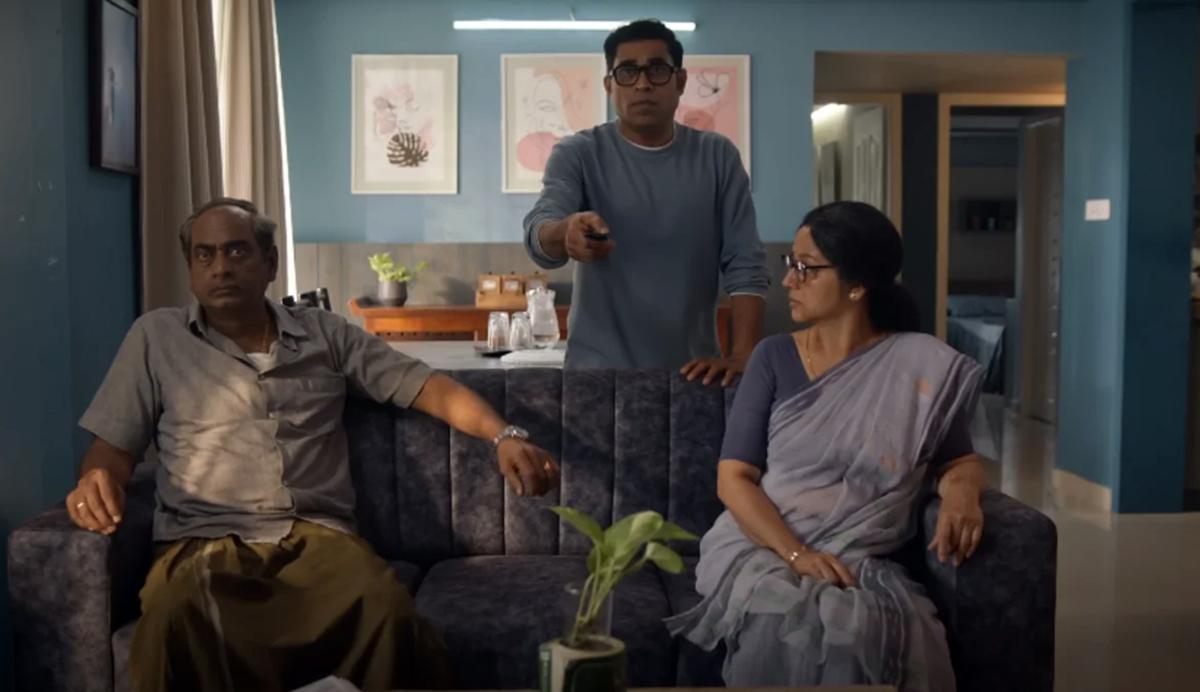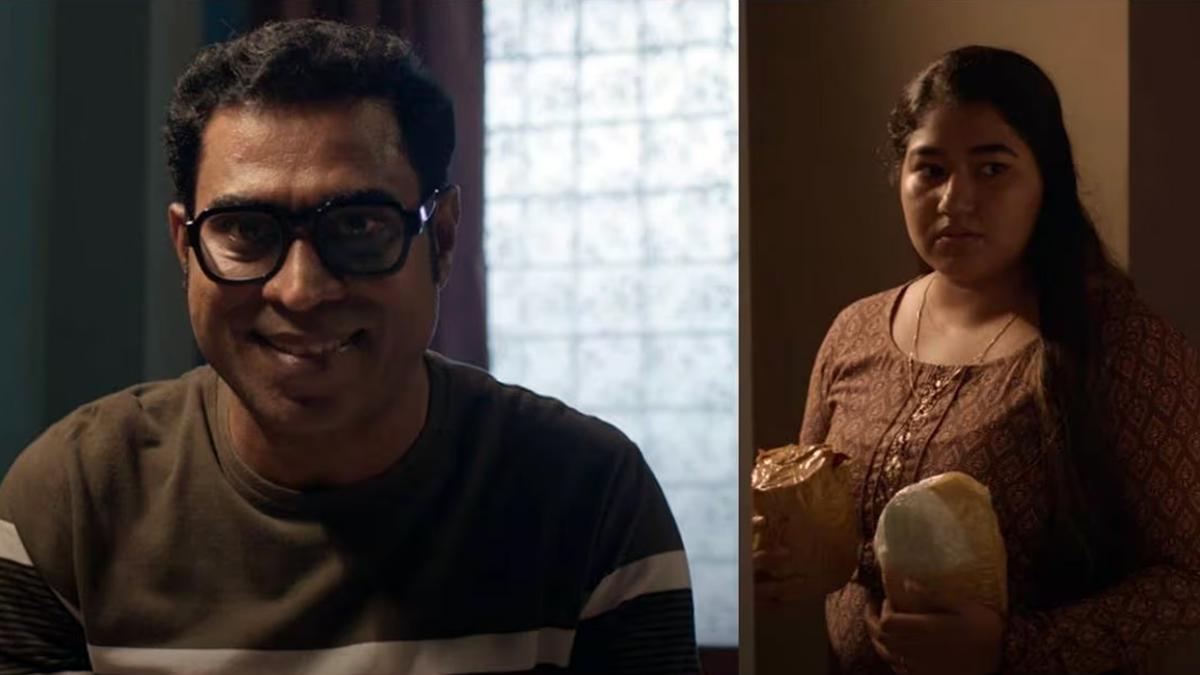Rumors of the death of the biopic have been greatly exaggerated.
The rumors go something like this: Twenty years ago, director James Mangold made Walk the Line about the life and times of Johnny Cash, starring Joaquin Phoenix as Cash and Reese Witherspoon as June Carter. It was a critical and box office hit—Witherspoon even won the Best Actress Oscar. The movie was as traditional as it gets, starting with Johnny’s abusive childhood on a farm, and going on to depict his musical ambitions, his chaotic love life, his struggles with drugs and alcohol, and his career setbacks and triumphs.
Indeed, the film was so by-the-numbers, it prompted a parody, Walk Hard: The Dewey Cox Story, which was both an uncanny simulacrum and a brutal takedown. There’s nothing like a good parody to make you realize how cliched a particular genre really is and once Walk Hard lifted the curtain its tropes, it seemed that the traditional biopic was doomed.
Not so fast! Biopics have merely evolved: Recent ones have largely eschewed the Wikipedia-style retelling of a biography, instead homing in on a particularly illuminating period of the subject’s life. I think that’s a good development, as it forces the filmmaker to reflect on what they think is important about the subject and why this pivotal time frame matters.
It’s fair to say that A Complete Unknown, Mangold’s new biopic of Bob Dylan, exists in a post Walk Hard world. We don’t have hazy flashbacks to Dylan’s childhood in Minnesota; there’s no framing device of present day Dylan, old and craggy, reflecting on his life. Instead, the film focuses on the period when young Bobby Dylan arrived in Greenwich Village with a guitar and a dream. It ends shortly after the infamous Newport Folk Festival where Dylan scandalized the assembled crowd and organizers by “going electric.” (Damn, America was cute back then.)
That said, there is nothing experimental or avant-garde in the storytelling here. It’s straightforward. Its pleasures come from seeing Timothée Chalamet channel Dylan, from its brilliant supporting cast (particularly Edward Norton as Pete Seeger—more on him in a bit), and from its painstaking recreation of the 1960s folk scene.
Let’s start with Chalamet, because that’s who you’re here to read about. Famously, he does all of his own singing and guitar/harmonica playing in the film—and most of the takes are live, because he wanted to capture Dylan’s rough and raw performance style. Only Dylan can really do justice to Dylan, but Chalamet comes close and his instinct to perform live was spot-on. He nails Dylan’s nasal, mumbly voice and he has his confident magnetism on stage as well as his hooded, cautious presence off of it. (Dylan is the rare celebrity who says he hates fame—and we believe him.) Chalamet seems every inch the brooding, tortured, formidable young talent. And the concert scenes rip.
Young Dylan gravitated to the folk scene, because he was a natural born singer-songwriter and because he idolized Woody Guthrie (Scoot McNairy). But in many ways, he wasn’t a natural fit. He simply wasn’t earnest enough—everything he did was suffused with irony. And he believed that for something to be beautiful, it also had to be a little bit ugly. He derides his musical—and sometimes romantic—partner Joan Baez (Monica Barbaro) for having a voice that’s “too pretty.” “Your songs are like an oil painting at the dentist’s office,” he sneers. Baez correctly calls him an asshole.
The foil to Dylan was Pete Seeger (Edward Norton)—as earnest and irony-free as they come. Pete meets Dylan when the young musician shows up unexpectedly at Woody Guthrie’s hospital room. (This, like many scenes in the film is an amalgamation of actual events.) Guthrie, already deep in the throes of Huntington’s disease, can barely communicate, but he bangs his nightstand with appreciation as Dylan belts out the homage tune, “Song to Woody.” Seeger, too, recognizes that Dylan is a special talent and takes him home to crash at his house for a while.
Seeger is shown as having a wonderful life. His wife is a devoted partner, both personally and professionally. His children are adorable and loving. His home exudes an easy, familial warmth. But he is not the brilliant artist Dylan is. What’s more, he truly believes in the special power of folk music—a simple song, simply told, often with a humanitarian message. Dylan doesn’t outwardly scorn Seeger—he appreciates his talent. But he sees him as a bit of a relic and he finds the music corny. And Norton plays Seeger as sweet and sincere, humbled by Dylan’s talent and a little wounded by his artistic rejection. It’s a heartbreaking performance.
The film also focuses on Dylan’s love life. There are two central women in his life—Baez and Sylvie Russo (Elle Fanning), a beautiful peace activist who brought a measure of comfort and stability to Dylan’s life, but didn’t get much in return.
It’s funny that this is one of the few films Chalamet has done where he’s a true romantic lead—Call Me By Your Name was a love story, but he was the one doing most of the pining (and he was a literal cannibal in Bones and All so does that really count?). Here, he is the object of desire—withholding, mysterious, creative, and a bit of a dick. Who among us has not fallen for that guy? (Even with the help of a slight prosthetic nose, Chalamet is more handsome than Dylan ever was. But honestly, it was Dylan’s brilliance and elusiveness that made him so alluring. And Chalamet captures those qualities well.)
Mangold is a an exceptionally competent director. You can sit back and know you’re in the hands of a true pro. But he does have a hard time avoiding cliché or facile mash-ups. The Civil Rights movement is merely a tiny backdrop to the film, although Mangold makes it very clear that Black artists approved of the young troubadour. (At least twice he has an established Black blues artist—Odetta, in the wings of the Newport Folk Festival, and the made-up bluesman Jesse Moffett, on the set of Pete Seeger’s public access television show, Rainbow Quest—nod approvingly as Dylan sings.) This strikes me as self-serving, a shorthand for really delving into Dylan’s relationship to Black music and the civil rights movement. And Mangold uses Johnny Cash (Boyd Holbrook), clearly one of his heroes, as an avatar for artistic rebellion and integrity. (“Track some mud on the carpet,” he advises young Bob.) The pep talks he gives Dylan were likely fabricated.
The heart and soul of the film, though, is that relationship between Dylan and Seeger. And here’s where giving a film focus really does help. Because Norton’s open, searching face will break you. But it also reflects a larger cultural shift, away from a more decorous kind of counterculture, to one that was loud and rebellious and angry.
Do we understand Dylan better after watching A Complete Unknown? A bit. He’s a famously elusive figure (which Todd Hayne’s cleverly tackled in his experimental Dylan biopic, I’m Not There, by giving Dylan several different personas played by different actors). But the film’s biggest thrill is watching the formation of an uncompromising artist and getting a little taste of what it must’ve been like to wander into Gerde’s Folk City on a random night and see a young man in a snap cap who was about to change the world.





























/cdn.vox-cdn.com/uploads/chorus_asset/file/25782636/247422_ChatGPT_anniversary_CVirginia.jpg)
/cdn.vox-cdn.com/uploads/chorus_asset/file/25789444/1258459915.jpg)

/cdn.vox-cdn.com/uploads/chorus_asset/file/25546252/STK169_Mark_Zuckerburg_CVIRGINIA_D.jpg)


/cdn.vox-cdn.com/uploads/chorus_asset/file/23951353/STK043_VRG_Illo_N_Barclay_3_Meta.jpg)